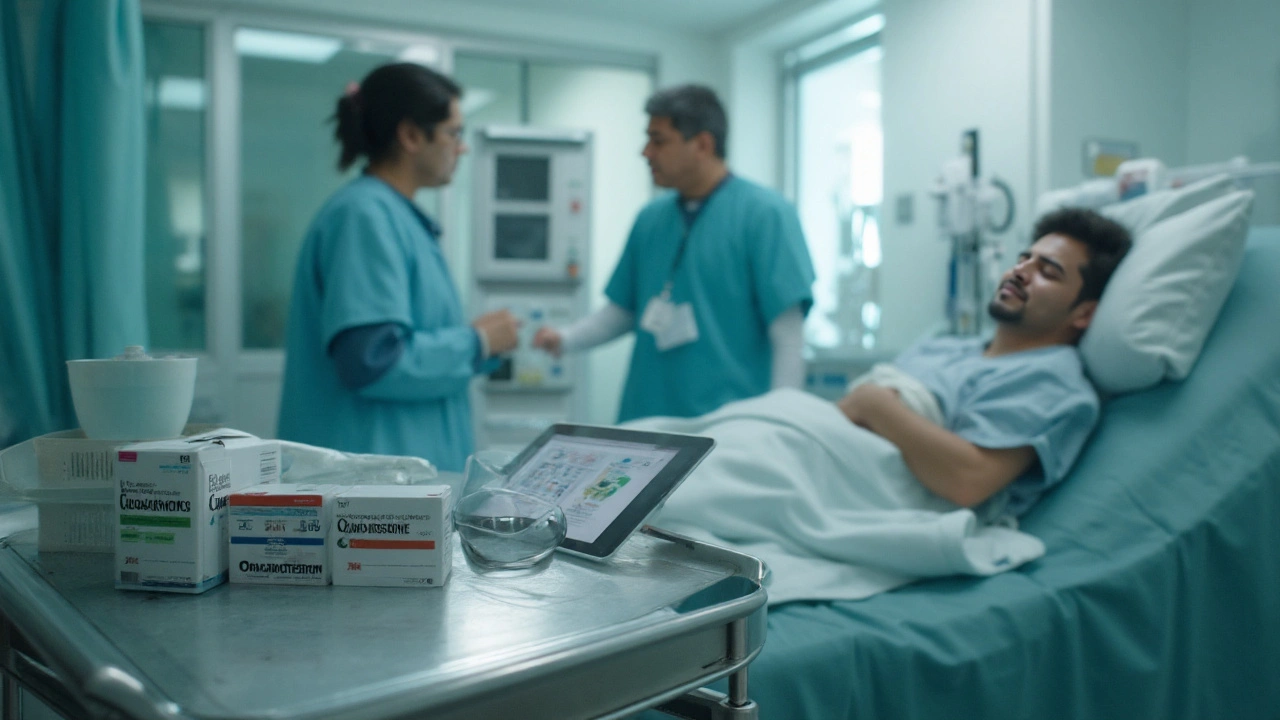Antiemetic Medications: What They Are and How to Use Them Safely
If you’ve ever felt queasy after chemo, motion sickness on a road trip, or an upset stomach from antibiotics, you know how miserable nausea can be. Antiemetics are the drugs that stop that feeling in its tracks. In plain terms, they’re medicines designed to prevent or treat vomiting and the urge to throw up.
There’s no one‑size‑fits‑all antiemetic. Different situations need different drugs. The most common categories include serotonin (5‑HT3) blockers like ondansetron, dopamine antagonists such as metoclopramide, antihistamines like diphenhydramine, and anticholinergics such as scopolamine patches. Each works on a specific part of the brain’s nausea center or the stomach lining.
When to Reach for an Antiemetic
Knowing when you actually need one can save you time, money, and side effects. Here are three everyday scenarios:
- Chemotherapy or radiation: Doctors usually prescribe a 5‑HT3 blocker before treatment to keep nausea from ruining the day.
- Travel sickness: Antihistamines taken an hour before you board work well for motion‑induced queasiness. Scopolamine patches are handy for longer trips.
- Medication side effects: Some antibiotics, painkillers, or opioid prescriptions cause stomach upset. A dopamine antagonist can calm the gut without interfering with the main drug.
If you’re unsure whether an antiemetic is right for you, talk to a pharmacist or your doctor. They’ll match the drug to the cause and check for interactions.
Buying Antiemetics Online – What You Need to Know
Online pharmacies can be convenient, but safety matters more than price. Follow these three steps before you click “Buy”:
- Check the license. Look for a pharmacy that displays a valid UK or EU licence number and a clear physical address.
- Verify the prescription requirement. Legit sites will ask for a doctor’s script for most antiemetics, especially those used in chemotherapy. If they say “no prescription needed,” walk away.
- Read reviews and red flags. Customer feedback should mention prompt delivery, proper packaging, and accurate medication. Beware of sites promising “instant shipping” for controlled drugs.
Once you find a trusted pharmacy, keep these tips handy:
- Store tablets in a cool, dry place – heat can reduce effectiveness.
- Never split pills unless your doctor says it’s safe. Some antiemetics have a specific release coating.
- If you notice new side effects (dizziness, rash, severe constipation), stop the drug and contact a healthcare professional immediately.
Remember, antiemetics are powerful tools, not candy. Using them responsibly keeps nausea under control without unwanted complications.
Got more questions about a specific antiemetic or need help finding a reputable online pharmacy? Our blog has detailed reviews for popular drugs like ondansetron, metoclopramide and scopolamine. Dive in to get the facts you need before you order.

Can Topiramate Relieve Motion Sickness? Benefits, Risks & Alternatives
Oct, 22 2025

Cinnarizine for PONV: When It Helps After Surgery, Evidence and Safety (2025)
Aug, 27 2025
